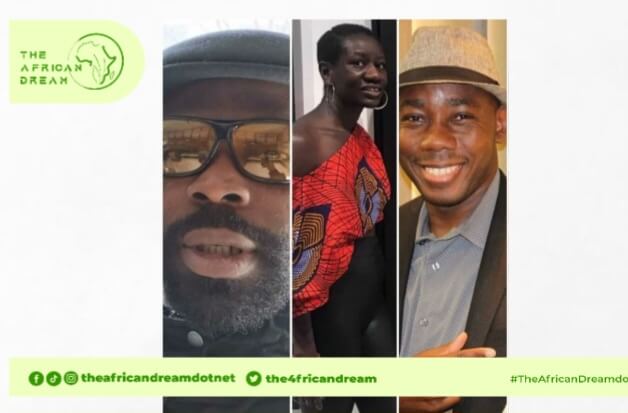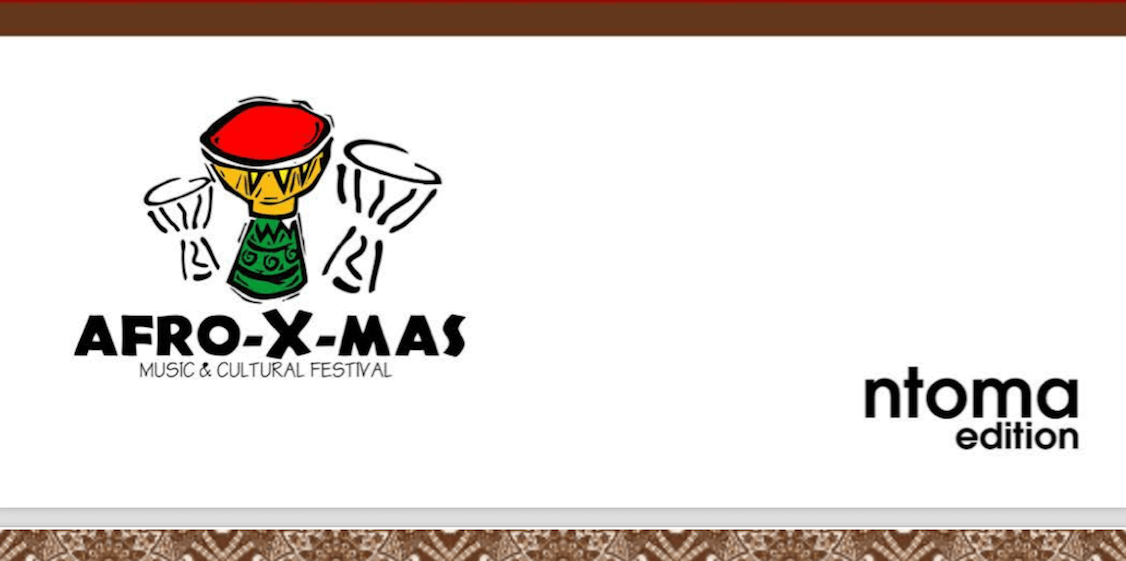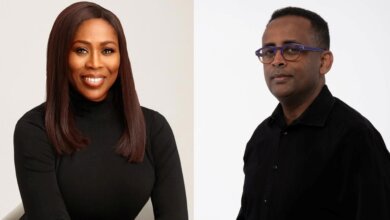Own your languages – AKADiMagazine.co.uk Clubhouse panel urges Africans

Ghanaians, especially those living abroad have been asked to embrace speaking their local language and be proud of it. This call was made in a panel discussion organized by AKADiMagazine.co.uk on the social media audio app Clubhouse that was moderated by Abena Serwaa Osei-Bempong who is Editor In Chief at akadimagazine.com & msbwrites.co.uk both located in the United Kingdom (UK).
During the audio discussions it was agreed that around the world, the English language has replaced indigenous languages in multiple aspects of social and economic life, leaving people void of their cultural expression, a situation the panel felt if not fixed could lead to severe language endangerment. The moderator, Ms. Osei-Bempong reiterated that no matter the level of fluency a person has in their own language, they could still express it boldly and not be ashamed or intimidated by a foreign language or land.
“We need to encourage each other to learn our original languages. We need to encourage each other to be proud of being African,” she added.
Research has shown that over the years there has been a major boost to how Ghanaian immigrants and Africans as a whole living overseas were embracing the speaking of their respective indigenous languages.
Speak it, don’t be shy of it, own your language but don’t weaponize it
It is estimated that by 2050 half of the world’s languages will actually be wiped out. This urgency fuels the need for local languages to be documented and spoken so they could be passed down to several generations in order to maintain the history they convey.
On language endangerment and forgiving those before us
We have seen this in native America, in different areas, and even in Peru and other parts of South America… where languages that are not written or recorded have died with their stories and with their culture and history, proverbs, songs, and all the important things that needed to be preserved for the heritage of a people.
As a people, we must provide an avenue for children to forgive their parents who did not teach them their language but also enlightened them to see the opportunity to learn their language no matter how difficult and intimidating it might be. Speaking to this during his submission to the panel, Oral Ofori of TheAfricanDream.net agreed and told AkadiMagazine during the Clubhouse discussion that he has been speaking his mother tongue to his children since they were born in the United States (US) close to a decade ago.
“As a Ghanaian who moved to the US by way of the UK, I have been an interpreter for the Fairfax County Public School system here in the US for over 5yrs. I interpreted Ghanaian dialects like Twi for schools. It therefore filled me with a sense of pride that I was getting an opportunity to pass on my language in a country where the language did not originate. So when I started having children I told myself I was going to speak my mother tongue to them” — Oral Ofori said, adding that he wishes not to romanticize the past since it has its own ills, but “we must not discard those aspects of our history that positively move us into a progressive future.“
Mr. Ofori said to young parents in the diaspora: “don’t think you will confuse your children by introducing an African language (or whatever your native tongue maybe) to them in a foreign land, mine for example now understand me although I admit they rarely speak back to me. But that’s fine, I am speaking to their spirits and I know one day when the time is right their spirits will thank them. For now, I am just happy they are trying to understand me. And for those on the continent, allow your children to speak your language alongside whatever non-native language of business you might have in your part of Africa. This is because it doesn’t make them less intelligent or confused, children are smarter than we credit them.”
Post-traumatic syndrome plays a role in Africa’s unspoken history…
Kofi Aseidu–Berchie who also contributed to the discussion in his response to the question: Does calling our languages local minimize their importance, indicated that it does, based on perception, although it was important to look at the words, definitions, and the value placed on a language. When we look at these effects we are looking at post-traumatic syndrome [too] because as Africans, Ghanaians, Blacks or whatsoever we wish to define ourselves, we have an untold history because of several decades or centuries that we have had European influence through slavery and colonialism on our history.
In his opinion, Mr. Aseidu–Berchie felt that due to this influence, for the mostly negative, “We make it difficult to break out of that change process which allows us to fully embrace who we are culturally and linguistically. We need to look at our history, our concepts, our thought processes, and have strong self-awareness. If we take history for example two things stand out: colonial powers and slave trade. Previous generations before we were not educated to believe in themselves as a result of these two things,” their negative effects still permeate today which is why the need to relearn and unlearn who we are as Africans is very important through language.
He went on to indicate that language defines a people and the moment they align to a certain language that is not theirs they in effect reduce their value. He called on Ghanaians to embrace the odds to change the narrative and not just associate with others because they want to be acknowledged for being able to speak the English language or whatever foreign language.
”We are happy to join any association as long as we can have fun with it and so laying our own foundations for our future becomes a challenge today for us as Ghanaians,” Aseidu–Berchie critiqued. “Yes we have the pidgin-English but we need to understand that there is a reason why for instance our leaders, Presidents, Members of Parliament and others when they travel abroad choose to use our very own African concepts or proverbs briefly.”
“They choose to use African proverbs and interpret such into English for example to be able to make more reason since they know the value of their respective languages, for instance, explaining a proverb from Akan into English allows them to appear a lot wiser and to sell the language on the international stage too“ submitted Aseidu–Berchie.
Source: TheAfricanDream.net

Abeeb Lekan Sodiq is the Managing Editor of theafricandream.net, a pan-African news website subsidiary of US-based TheAfricanDream LLC. He is also a Human Resource Practitioner, and a freelance Graphics Designer. He has worked with prominent personalities, including ambassadors, secretariats, international organisations, universities, celebrities, NGO, and media firms.




